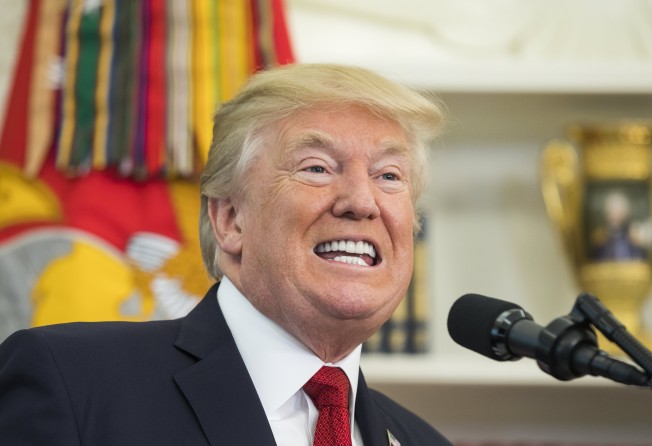Trump’s East Asia Summit no-show ‘to give China a chance to fill regional vacuum’
US president’s decision could send wrong message to Asian allies wary of Beijing’s push for greater influence, analysts say

US President Donald Trump is expected to skip an annual summit when he visits the region next month, a move analysts said would add to uncertainties about US engagement in the Asia-Pacific.
Trump’s absence from the summit and the United States’ withdrawal from the Trans-Pacific Partnership would give China and President Xi Jinping a chance to fill the regional leadership vacuum, observers said.
During his 12-day trip starting on November 3, Trump will visit five Asian nations, including China, and attend the Asia-Pacific Economic Cooperation Summit in Vietnam and the Asean-US Summit in the Philippines.
But the US president is unlikely to attend the East Asia Summit in the Philippines, an annual gathering of leaders from 18 nations in East Asia, Southeast Asia and South Asia, including the US and China.
Trump would meet Philippine President Rodrigo Duterte and other leaders in Manila on November 12 and 13 on the sidelines but will be unlikely to travel the extra 84km to the Philippine city of Angeles on November 14 for the East Asia Summit itself, The Washington Post quoted a National Security Council spokesman as saying.
The report said officials close to Trump were concerned the president did not want to stay in the region for so long and were worried Trump could get “cranky, leading to unpredictable or undiplomatic behaviour”.
Trump’s absence from the East Asia Summit could be another blow to the countries in the region, especially US allies who see Washington as a counterbalance to Beijing.
Richard Heydarian, assistant professor in international affairs and political science at De La Salle University in Manila, said the president’s decision not to attend was strange and could send the wrong signal to a region lamenting a lack of engagement by Trump after years of intense diplomatic interaction during the administration of his predecessor, Barack Obama.
“Given China’s rising influence in Southeast Asia, Trump should have doubled down rather than minimised Obama’s earlier engagement strategy,” he said.
Trump’s decision comes as China expands its influence abroad through infrastructure investment and Xi has started his second term as Communist Party chief.
Ian Storey, from the ISEAS-Yusof Ishak Institute in Singapore, said the US president’s timing was “terrible”.
“Just as President Xi has consolidated power at home and proclaimed China’s regional leadership ambitions, the American president has signalled that he doesn’t have the energy to stay on for another 24 hours to attend one of the most important meetings of Asia-Pacific leaders,” Storey said.
Evan Resnick, an assistant professor and coordinator of the US programme at the S. Rajaratnam School of International Studies in Singapore, said Trump’s decision would affect the unity of Southeast Asian nations in the face of a powerful China.
“China is already stepping in and Trump is increasing the opportunities by taking the US out of the game,” Resnick said.
But Jinan University Southeast Asian affairs specialist Zhang Mingliang said Beijing should to be careful in its dealings with its Southeast Asian neighbours, who are already wary about China’s growing assertiveness in the region.
“Many Southeast Asian nations see the US as a power to counterbalance China, and with Washington’s influence waning, concerns ... about China will be on the rise,” Zhang said.